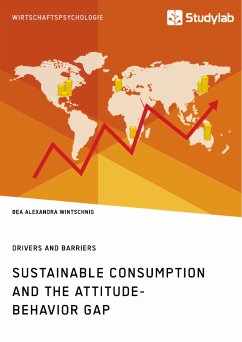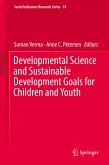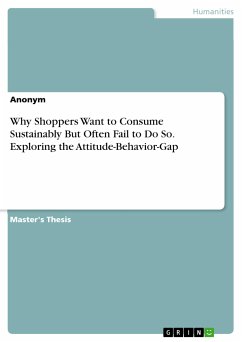Adolescents around the globe are demonstrating for a sustainable future. Businesses, too, increasingly embrace the idea of sustainable economic activities. Sustainability has evolved from a niche topic into a mainstream one. Nevertheless, there still is a discrepancy between people's attitudes toward sustainable practices and the extent to which they actually act on them. Which drivers and barriers of sustainable consumption exist? What are the reasons for the attitude-behavior gap? Bea Alexandra Wintschnig discusses the necessity of sustainable consumption patterns in practice as a key enabler of a general sustainable development. The variety of identified factors can broadly be subdivided into two categories: individual-related and environmental determinants. The former includes socio- demographics, personal characteristics and value orientation. The environmental determinants comprise product, service or behavior-related factors, such as cost of consumption or stereotypes of sustainable products. Bea Alexandra Wintschnig explains why people seem to talk more about environmental protection than they actually do for it. In this book: - Climate protection; - Sustainability; - Corporate Social Responsibility; - Self-efficacy; - society
Dieser Download kann aus rechtlichen Gründen nur mit Rechnungsadresse in A, B, BG, CY, CZ, D, DK, EW, E, FIN, F, GR, HR, H, IRL, I, LT, L, LR, M, NL, PL, P, R, S, SLO, SK ausgeliefert werden.









